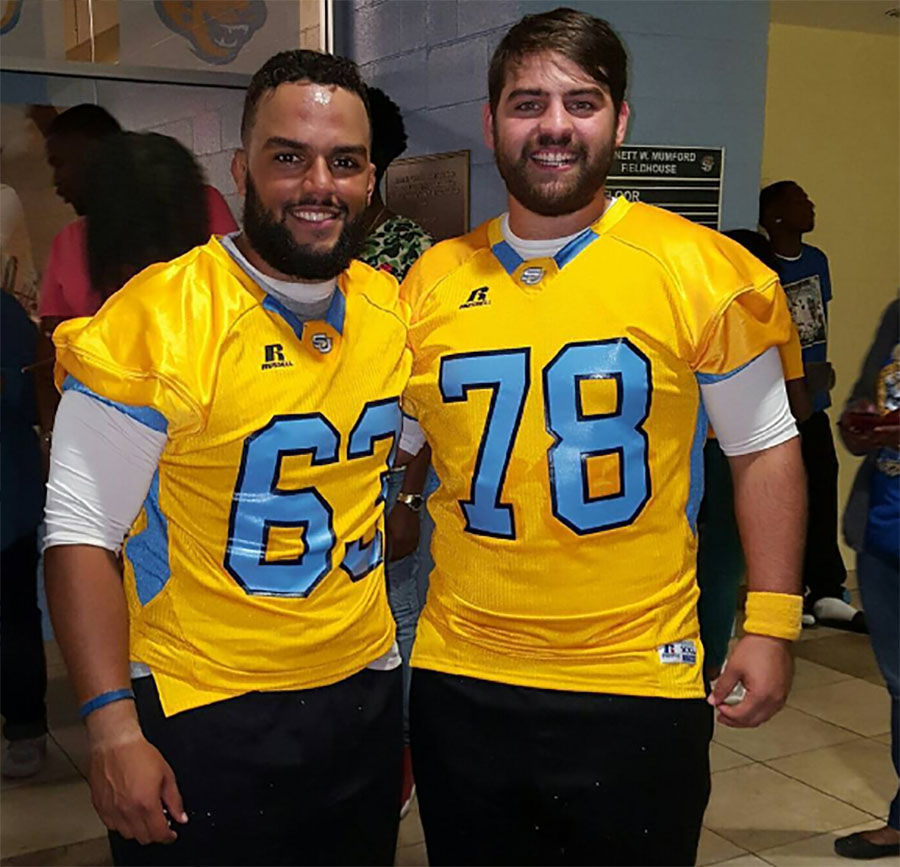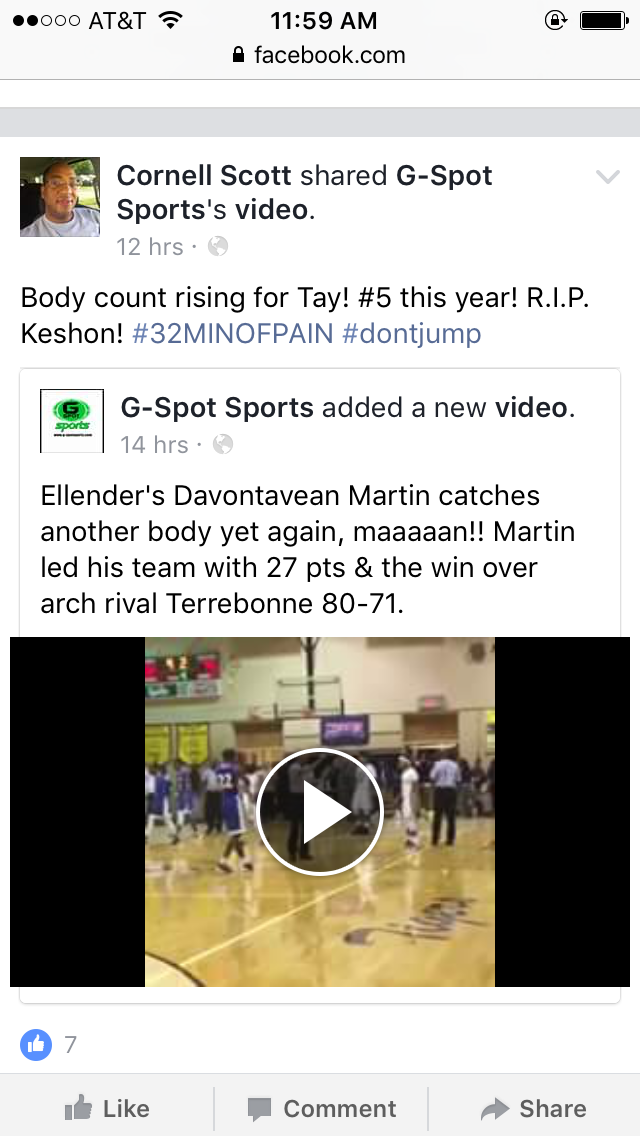A humble souvenir
December 13, 2016
Long snapping star: Gators grad making mark at Southern
December 13, 2016A social media post by the basketball coach for a Houma high school caused a stir last week because of a reference to a fall by another team’s player during a defensive move that some parents saw as insensitive.
The post was removed from the G-Spot Sports Facebook page the day after it appeared. But administrators say it is an example of how online comments – by players or coaches – can easily cause offense, and why caution should be used before a send button is pressed.
At issue initially was a game-ending slam-dunk onDec. 6 by Ellender Memorial High guard Davontavean Martin, considered by some an unnecessary flourish since his team was ahead. Attempting to block the shot was Terrebonne player Keshawn James, who took a fall in the process.
Ellender walked away the victors with a score of 80-71. Video of the play appeared on the G-Spot Facebook page and Ellender’s coach, Cornell Scott, commented “Body count rising for Tay #5 this year. RIP Keshon.”
The wording, for some parents, players and even fellow coaches, was unfortunate.
Another school in the district, South Terrebonne, had recently lost an athlete due to an accident, so some offense was taken there, even though the school was itself not involved.
Parents of some Terrebonne students – including James’ mother, according to one account, also had complaints about the post.
Scott said he had not anticipated that his post, made in a light-hearted moment, might be seen as offensive, and that no offense was intended.
“Me and Keshawn’s father went to school together, we clown and joke around with each other so the day before the game, he called me and told me that the coach from Terrebonne had called him, and said Terrebonne didn’t want to beat us so bad. So after the game we had a little conversation within ourselves on G-Spot, about catching bodies. Some of our athletes when a kid gets dumped they say they caught a body. My post was between friends including Keshawn’s daddy.”
Terrebonne coach Derek Szush received some of Scott’s feedback.
“Keshawn’s mother and father were very upset and I had phone calls the morning after, people wanting to speak to someone that can do something,” Szush said. “That the kid’s name was used, putting out there with words that were careless, that was a poor choice.”
Internet policies regarding teachers or coaches are minimal in the Terrebonne Parish School District.
“There are no restrictions on teachers participating in social media, Facebook etc.,” said Superintendent Philip Martin, who had not been advised of the gaffe. Martin did note there is a rule prohibiting individual electronic communication with students.
Martin said when it comes to coach conduct on the internet, or anyone else connected with the school system, that he would hope the golden rule is followed, meaning people should treat others the same way they themselves would wish to be treated.
Szush and other coaches acknowledged in interviews that they – like coaches throughout the U.S. – have been informing athlete that proper netiquette should be followed in their own postings, noting that scouts from colleges and future employers look to social networking for clues about their potential acquisitions or hires.
Social media postings that turn into social etiquette fails are not unknown at Terrebonne High, where an internet flub resulted in a public apology from the school. Photos of a person wearing a shirt that was perceived as belittling the H.L. Bourgeois band for its practice of cleaning up stadium grounds voluntarily popped up on various Facebook pages. The resulting apology was placed front and center on the THS home page.
At least one expert on public sensibilities – particularly in the world of sports – suggests that such misadventures are evidence of a new normal that is emerging in public communication, and one that should be avoided.
Local schools have been dealing with several instances of bad internet behavior by students this year, including a problematic video containing racial epithets disparaging black athletes that was making the rounds in November, the result of a post by a white South Terrebonne student that was widely circulated.
Walter T. Champion, professor of sports and entertainment law at Texas Southern University’s Thurgood Marshall School of Law, says this year’s rough-and-tumble presidential campaign set new standards for acceptance of rudeness.
Even the event preceding the internet comment by Ellender’s coach, the slam-dunk by Martin, is seen by Champion as evidence of acceptance of bad behavior or poor form.
“Gamesmanship and illegitimate sportsmanship might be a new kind of normal,” said Champion, an author whose titles include “Sports Ethics for Sports Management Professionals” (Jones & Bartlett, Burlington, Mass.) “It’s not good manners. If I was the coach I would apologize profusely.”
Organizations like the National Education Association recommend that schools review their internet and social media policies for both teachers and students, to avoid conflict, bad feelings and other repercussions. •











